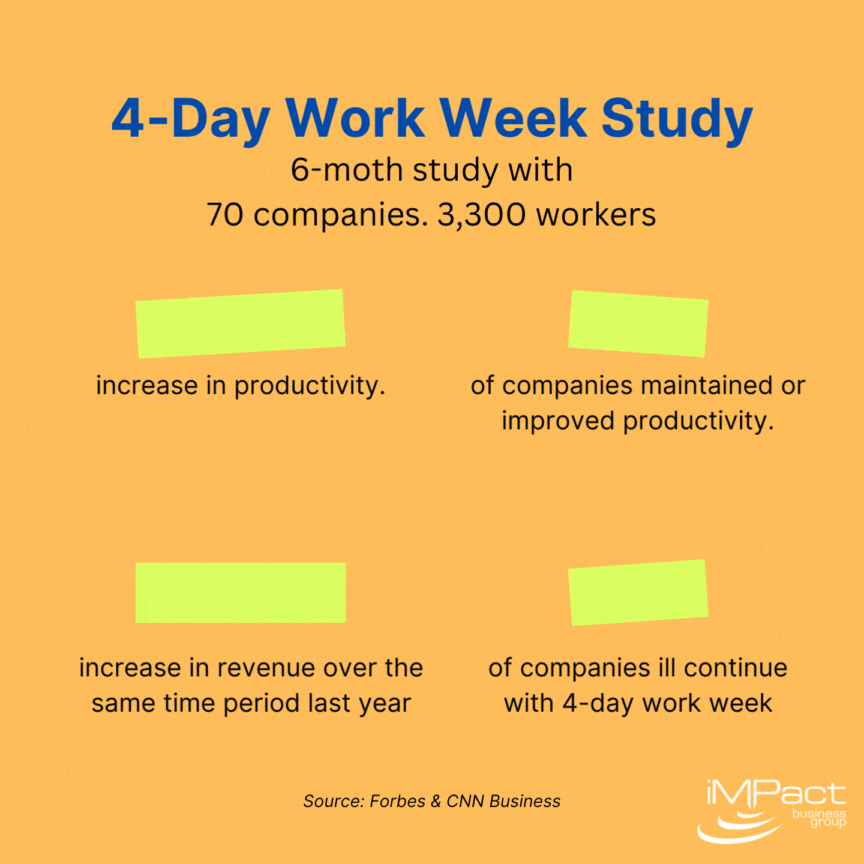Can a 4-day Work Week Be Successful?
As the world continues to evolve and adapt to new ways of working, many companies are starting to explore the idea of implementing a four-day work week. According to a new 6-month study where employees worked 4 days a week with no reduction in pay, with 70 companies and 3,300 workers participating, companies reported an average of 38% increase in revenue compared to the same time period last year. An internal study at one company showed that productivity was up 35%. 95% of companies reported maintained or improved productivity, and 86% reported that they will continue with the program once the official trial ends.
Proponents of the four-day work week argue that it can improve employee morale and productivity by giving them more time to focus on their personal lives and recharge. Additionally, it can help to reduce burnout and absenteeism, as well as lower operational costs for businesses. Some companies have already implemented this model with success, including Microsoft Japan and Perpetual Guardian in New Zealand. In both cases, employees reported increased productivity and job satisfaction, as well as better work-life balance.
How to make a 4-day Work Week Successful
To make a 4-day work week successful, employers should first clearly communicate the change to employees and make sure they understand the benefits and expectations. Employers should also provide support and flexibility, such as allowing employees to adjust their schedules to accommodate the shorter week. Employers should also consider offering additional training or resources to help employees improve their productivity and work more efficiently. Additionally, it’s important for employers to regularly evaluate the success of the 4 day work week and make adjustments as needed to ensure that it is working well for both the company and its employees.
What are Some of the Challenges?
However, there are also challenges to implementing a four-day work week. For example, some employees may find it difficult to adjust to the compressed work schedule, and there may be additional coordination and communication required between teams. Ultimately, whether a four-day workweek is right for your business will depend on your specific industry and workforce. It’s important to consider the potential benefits and challenges and consult with your team to see if it’s a viable option.
Overall, the four-day work week is an interesting concept that has the potential to improve employee well-being and productivity. As more companies explore and implement this model, it will be interesting to see the long-term effects on the workforce and business operations. Let us know in the comments what your thoughts are about a 4-day work week and if it’s something that would work for your company and job role.
Find Your Next Career Opportunity with iMPact
iMPact Business Group is a staffing agency specializing in Information Technology, Engineering, Finance/Accounting, and Business Administration/Process positions. To connect with one of our professional recruiters, view our job board for all available positions, or submit your resume for consideration here. Click here to learn more about our available work from home opportunities and to submit your resume for consideration.






